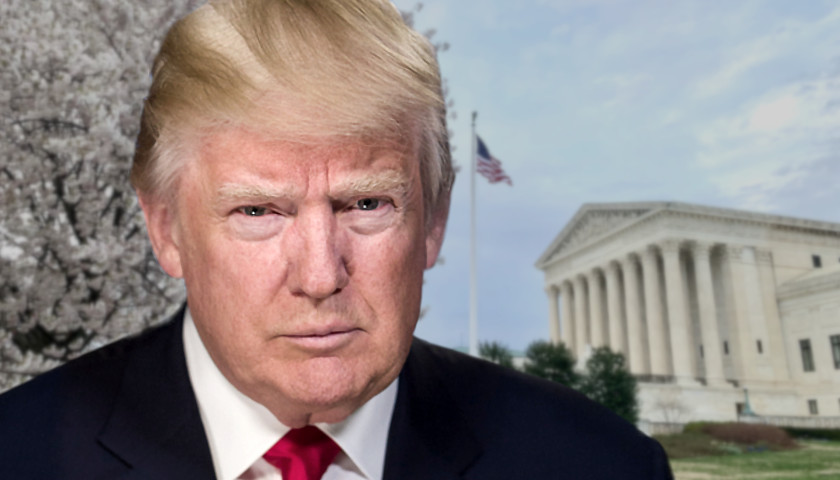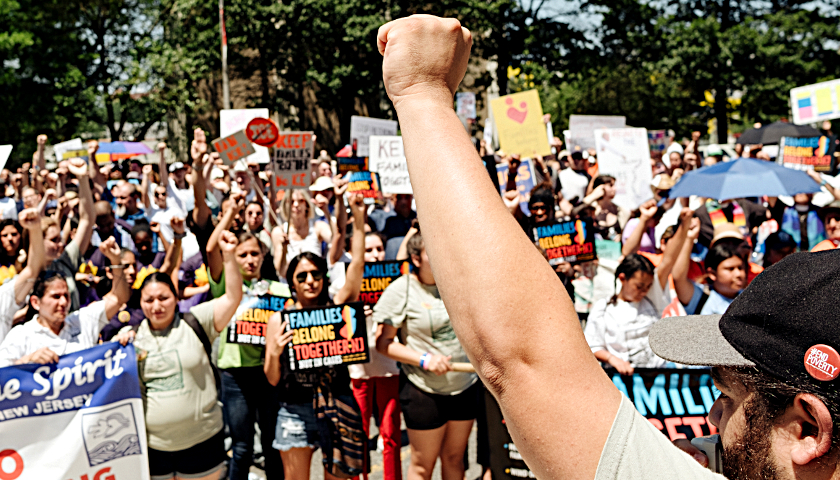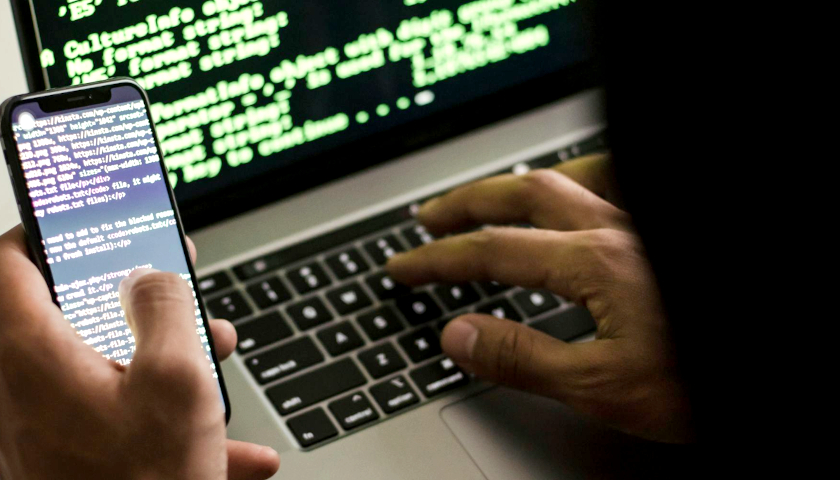by Ken Masugi
The president was not whining when he tweeted about the continuing “political prosecution” permitted by the two tax returns cases issued Wednesday by the Supreme Court. These two cases, although short-term wins for Trump, illustrate the role of the federal and state courts in the administrative state and reveal the burdens this conglomeration places on a reforming president. Let’s take the worst of the bad news first.
Justice Samuel Alito’s dissent in Trump v. Vance summarizes the problem with the New York County District Attorney’s subpoena of the president’s tax returns for a grand jury.
The subpoena at issue here is unprecedented. Never before has a local prosecutor subpoenaed the records of a sitting President. The Court’s decision threatens to impair the functioning of the Presidency and provides no real protection against the use of the subpoena power by the Nation’s 2,300+ local prosecutors. Respect for the structure of Government created by the Constitution demands greater protection for an institution that is vital to the Nation’s safety and well-being.
Alito had previously lamented, in the DACA case, that “the Federal Judiciary, without holding that [the Deferred Action for Childhood Arrivals program] cannot be rescinded, has prevented that from occurring during an entire Presidential term. Our constitutional system is not supposed to work that way.”
Ominously, Chief Justice John Roberts’ majority opinion presented a split on the court, with a concurrence on only the judgment by Justice Brett Kavanaugh (joined by Justice Neil Gorsuch) and Justices Clarence Thomas and Alito dissenting.
Both Kavanaugh and Roberts noted the agreement of the dissenters on many points of the majority, but they miss the thrust of their objection: the subjectivity on so many fronts that invites a thousand pricks from the federal and state judiciaries. Thomas had questioned the legality of universal injunctions issued by federal district court judges in Trump v. Hawaii, the so-called Muslim travel ban case.
Yet Roberts reassures that presidents have borne such burdens before (“two centuries of experience confirm that a properly tailored criminal subpoena will not normally hamper the performance of the President’s constitutional duties.”) To the contrary, Alito responds, with a list of horrors possibly resulting from a local prosecution:
Could he be sent to Rikers Island or be required to post bail? Could the judge impose restrictions on his travel? If the President were scheduled to travel abroad—perhaps to attend a G–7 meeting—would he have to get judicial approval? If the President were charged with a complicated offense requiring a long trial, would he have to put his Presidential responsibilities aside for weeks on end while sitting in a Manhattan courtroom?
Finally, Alito demolishes Roberts’ use of Chief Justice John Marshall on the Aaron Burr trial to prove his point about state subpoenas. Instead, Alito notes,
The lesson we should take from Marshall’s jurisprudence is the lesson of McCulloch [v. Maryland]—the importance of preventing a State from undermining the lawful exercise of authority conferred by the Constitution on the Federal Government. There is considerable irony in the Court’s invocation of Marshall to defend a decision allowing a State’s prosecutorial power to run roughshod over the functioning of a branch of the Federal Government.
So the Manhattan prosecutor will be permitted his subpoena to replay old episodes of “Law and Order,” if he can persuade the original court and any other courts of the appeal, including the Supreme Court. How the justices line up the next time is something on which to speculate. But such uncertainty does not respect the scope of “the executive power” of the office of the presidency.
Trump v. Mazars: All Things to All Lawyers
The second case, Trump v. Mazars, concerns subpoenas by three committees of the House of Representatives, which argue they need President Trump’s tax returns going back to before his presidency for “legislative purposes.”
This 7-2 Roberts opinion seems somewhat more sympathetic to the Trump position than does the Vance opinion. He presents strong arguments (and weaknesses) of arguments for and against the House. “Congress has no enumerated constitutional power to conduct investigations or issue subpoenas, but we have held that each House has power ‘to secure needed information’ in order to legislate.”
While dismissing the president’s “demonstrated, specific need” for subpoenaed papers requirement, the Chief Justice criticized the House for failing “to take adequate account of the significant separation of powers issues raised by congressional subpoenas for the President’s information. Congress and the President have an ongoing institutional relationship as the ‘opposite and rival’ political branches established by the Constitution.” Presenting a guide for House lawyers, he chides them for leaving essentially no limits on the congressional power to subpoena the president’s personal records. After all, “The President’s financial records could relate to economic reform, medical records to health reform, school transcripts to education reform, and so on. Indeed, at argument, the House was unable to identify any type of information that lacks some relation to potential legislation.” So Roberts tutors the lower house on Article II 101:
The interbranch conflict here does not vanish simply because the subpoenas seek personal papers or because the President sued in his personal capacity. The President is the only person who alone composes a branch of government. As a result, there is not always a clear line between his personal and official affairs. “The interest of the man” is often “connected with the constitutional rights of the place.”
Roberts concludes with four points for the lower courts and the parties to consider when rearguing this case:
First, courts should carefully assess whether the asserted legislative purpose warrants the significant step of involving the President and his papers . . . . Second, to narrow the scope of possible conflict between the branches, courts should insist on a subpoena no broader than reasonably necessary to support Congress’s legislative objective . . . . Third, courts should be attentive to the nature of the evidence offered by Congress to establish that a subpoena advances a valid legislative purpose. The more detailed and substantial the evidence of Congress’s legislative purpose, the better . . . . Fourth, courts should be careful to assess the burdens imposed on the President by a subpoena . . . .
Perhaps the Chief Justice (fresh from presiding over the impeachment trial) is aware of the futility of teaching Congress anything about their fundamental duties, which they have been avoiding for over 50 years. But his test—will it be Roberts’ lemon?—got six votes from his colleagues.
The Thomas and Alito dissents illustrate the weaknesses of Roberts’ approach, anticipated in earlier court opinions. Alito finds that “legislative subpoenas for a President’s personal documents are inherently suspicious.” Thomas contends, “For nearly two centuries, until the 1970s, Congress never attempted to subpoena documents to investigate wrongdoing by the President outside the context of impeachment.” He concludes that “Congress’ legislative powers do not authorize it to engage in a nationwide inquisition with whatever resources it chooses to appropriate for itself. The majority’s solution—a nonexhaustive four-factor test of uncertain origin—is better than nothing.” Thus, for Congress to obtain private, nonofficial documents “it must proceed under the impeachment power,” not its ordinary legislative powers.
The justices who think Congress is still about legislating, when it has been clear for 50 years that it serves to fund and reinforce the administrative state, do not see their own role in perpetuating it and in failing to end it. They are now part of the administrative state.
– – –
Ken Masugi, Ph.D., is a senior fellow of the Claremont Institute. He has been a speechwriter for two cabinet members, as well as for Clarence Thomas when he was chairman of the Equal Employment Opportunity Commission. Masugi is co-author, editor, or co-editor of seven books on American politics. He has taught at the U.S. Air Force Academy, where he was Olin Distinguished Visiting Professor; James Madison College of Michigan State University; the Ashbrook Center of Ashland University; and Princeton University.





